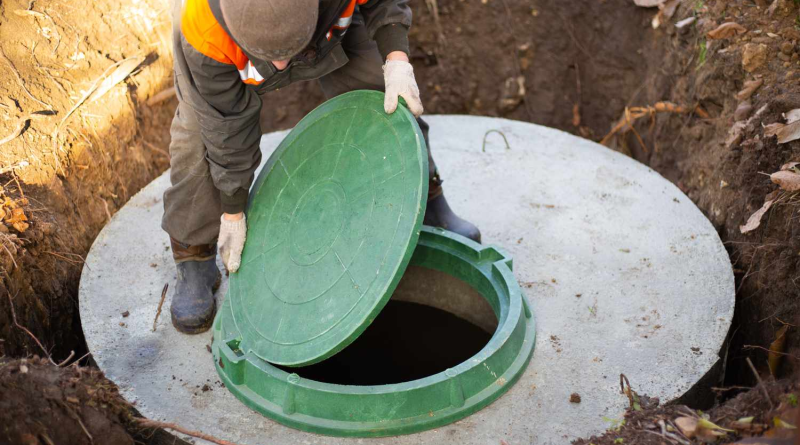Understanding Septic Tank Repairs: A Guide to Maintenance and Troubleshooting
Introduction
Septic tanks play a crucial role in managing household wastewater, providing an efficient and eco-friendly way to treat and dispose of sewage. However, like any other system, septic tanks require regular maintenance and occasional repairs to ensure they function optimally. In this comprehensive guide, we’ll delve into the world of septic tank repairs, covering common issues, preventive measures, and effective solutions.
Importance of Regular Maintenance
Before we dive into repairs, it’s essential to highlight the significance of regular septic tank maintenance. A well-maintained septic system not only prevents unpleasant odors and backups but also prolongs the lifespan of the entire system. Regular pumping, inspection, and proper waste disposal are key components of a successful maintenance routine.
Common Septic Tank Issues
1. Clogs and Blockages
One of the most prevalent issues with septic tanks is the accumulation of solids that can lead to clogs and blockages. Over time, sludge and debris settle at the bottom of the tank, reducing its capacity and hindering the flow of wastewater.
Solution: Regular pumping is essential to remove accumulated solids. Additionally, using bacteria additives can aid in breaking down organic matter, preventing clogs.
2. Leakage
Septic tank leakage can pose a significant threat to the environment and human health. Leaks may occur due to cracks in the tank, corroded pipes, or damaged seals.
Solution: Promptly address any visible leaks and perform routine inspections. If the tank or pipes are severely damaged, professional repair or replacement may be necessary.
3. Tree Root Infiltration
Tree roots seeking water and nutrients can infiltrate septic tank pipes, causing blockages and damage.
Solution: Regularly trim trees near the septic system and consider installing root barriers to prevent root infiltration.
4. Overloading
Overloading occurs when the septic system receives more wastewater than it can handle. This can lead to inefficiencies and system failures.
Solution: Be mindful of water usage, repair leaks promptly, and avoid overloading the system with excessive water in a short period.
5. Tank Structural Issues
Over time, septic tanks may experience structural issues such as deterioration or collapse, particularly in older systems.
Solution: Regular inspections by professionals can identify structural problems early. In severe cases, tank replacement may be necessary.
DIY Septic Tank Repairs
While some septic tank issues require professional intervention, there are certain repairs that homeowners can undertake with caution.
1. Unclogging Drains
If you notice slow drainage in sinks and toilets, there may be a partial blockage.
Solution: Use a plunger or a drain snake to clear minor clogs. Avoid using chemical drain cleaners, as they can harm the septic system.
2. Fixing Leaking Fixtures
Leaking fixtures contribute to excess water entering the septic system.
Solution: Repair or replace leaky faucets and toilets promptly to reduce the strain on the septic system.
3. Addressing Odors
Unpleasant odors around the septic tank area may indicate a problem.
Solution: Check for leaks, inspect the vent pipe for blockages, and ensure the tank is adequately vented.
Professional Septic Tank Repairs
Certain issues necessitate professional expertise to avoid further damage and ensure proper resolution.
1. Tank Pumping
Regular pumping by professionals is crucial for removing accumulated solids and preventing clogs.
2. Pipe Repairs and Replacements
Cracked or damaged pipes may require repair or replacement by a licensed plumber.
3. Septic Tank Replacement
In cases of irreparable structural damage, replacing the entire septic tank may be the only viable solution.
Preventive Measures for a Healthy Septic System
Preventing septic tank issues is as important as addressing them. Adopting these preventive measures can contribute to a healthy septic system:
1. Regular Inspections
Schedule professional inspections at least every three years to identify potential issues before they escalate.
2. Mindful Water Usage
Conserve water by fixing leaks promptly, using high-efficiency fixtures, and spreading laundry and dishwasher use throughout the week.
3. Proper Waste Disposal
Avoid flushing non-biodegradable items, chemicals, and excessive amounts of grease into the septic system.
4. Landscaping Considerations
Avoid planting trees and shrubs with aggressive root systems near the septic system to prevent root infiltration.
The Role of Professionals in Septic System Health
Professional assistance is indispensable in maintaining a healthy septic system. Trained technicians have the expertise to conduct thorough inspections, identify underlying issues, and implement effective solutions. Here’s a closer look at the crucial roles professionals play:
1. Comprehensive Inspections
Professionals conduct comprehensive inspections, assessing the overall health of the septic system. They evaluate the tank’s condition, check for leaks, inspect pipes for damage, and ensure proper drainage.
2. Accurate Diagnosis
Identifying the root cause of septic issues requires specialized knowledge. Professionals employ diagnostic tools and techniques to pinpoint problems accurately, preventing unnecessary repairs or replacements.
3. Efficient Pumping
Routine pumping is a key element of septic tank maintenance. Professionals have the equipment and experience to efficiently pump out accumulated solids, preventing clogs and system failures.
4. Safe Repairs and Replacements
In cases where DIY measures fall short, professionals can safely and effectively address complex issues. Whether it’s repairing damaged pipes or replacing an entire septic tank, their expertise ensures a long-lasting solution.
5. Environmental Compliance
Septic system repairs and maintenance must adhere to environmental regulations. Professionals are well-versed in local guidelines, ensuring that all repairs are environmentally friendly and comply with relevant standards.
Conclusion
Maintaining a healthy septic system requires a combination of regular inspections, preventive measures, and timely Septic Tank Repairs Loveland. Homeowners can play an active role in ensuring their septic tanks function optimally by adopting good practices and addressing minor issues promptly. However, for complex problems, it’s crucial to seek professional assistance to avoid further damage and ensure the longevity of the septic system. By understanding the common issues and implementing preventive measures, homeowners can enjoy a trouble-free septic system that efficiently manages household wastewater for years to come.

